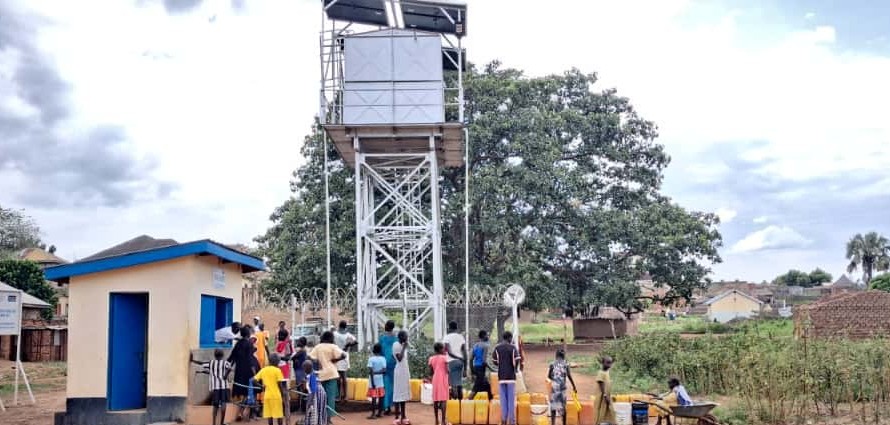
Residents of Hai Jedid in Wau North Payam are witnessing a transformation through a community-led clean water and green initiative that is improving daily life, boosting household incomes, and restoring the local environment.
The project, established under the Enhancing Community Resilience and Local Governance Project Phase II (ECRP II), has brought clean water closer to hundreds of families while promoting home-grown environmental solutions.
Manyang Mayom, Secretary General of the Hai Jedid Boma Community Development Committee, said the water yard and gardening initiative have become a source of hope and sustainability.
“This project has reduced water shortages and given us a way to support our families. We run the water yard as a community, and the money we make from selling vegetables and mango seedlings helps keep it operating,” he told The Standard Zone.
Ajok Kot, Chairlady of Hai Jedid Surb Residential Area, described the project as a turning point for local women.
“Before this water yard, people walked long distances to find water. But now, we have access here in our area. We contribute small amounts to maintain it and also plant vegetables and mango seedlings to raise income,” she said.
She explained that the green initiative started within the community itself to address climate challenges and promote sustainability.
“We plant mango seedlings and vegetables to make our area green and preserve the environment,” she said.
“A seedling sells for 10,000 SSP, and many people from Wau buy from us to resell at the market.”
According to Ajok, women in the group now earn about 40,000 SSP monthly, part of which goes toward maintaining the water yard and supporting their families.
The initiative is part of the $150 million ECRP II project, jointly implemented by the Government of South Sudan and the International Organization for Migration (IOM), targeting over 950,000 individuals across 79 counties in five states.
“The Government and IOM recognized our situation and supported us with this water yard,” said a local leader in Wau North Payam.
In Bessilia Payam, Angelo John, Headteacher of Jebel Andiya Primary School, said the project is life-saving but urged the government to repair their broken borehole.
“During the rainy season, we use water tanks installed by IOM and the Government, but in the dry season, we walk far to fetch water from a stream that dries up by February,” he said.
In Bagari Payam, Tereza Joseph Ubi, a women’s representative from Biringi, expressed gratitude for a newly drilled borehole serving more than 6,000 residents.
“We are grateful for the borehole near Biringi Primary School, it saves lives. But the one at the PHCU is broken, and the demand is too high,” she said.
Julio Emmanuel Mama, Chief Executive Officer of Wau Municipality, urged residents to take ownership of public facilities to ensure long-term benefits.
“Communities must take care of boreholes and water yards,” he said. “If they break down, it’s not just the Government’s loss, affects everyone.”
The Hai Jedid project shows how strong collaboration between communities, local authorities, and partners like IOM can deliver sustainable change, ensuring access to safe water, empowering women economically, and promoting environmental stewardship.

